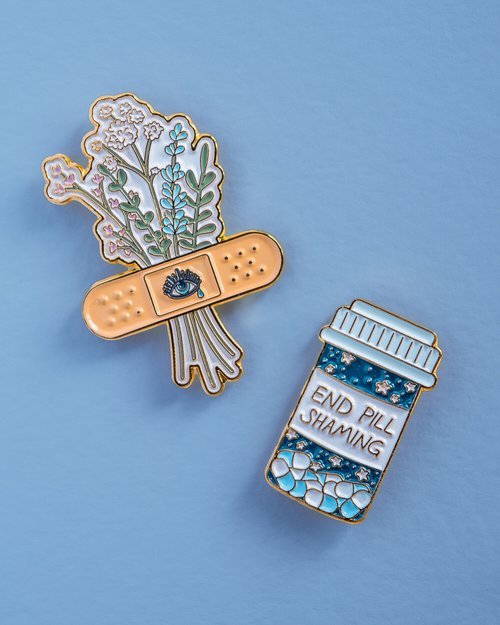Struggling With Harmful Thoughts
*Trigger Warning: Discussing Passive Suicidal Ideation
It's a common misconception that talking about suicide will increase the risk of it. However, suicidal ideation is actually bred in isolation and the risk increases when the hard conversations are pushed aside. With the current situation the world is in, more people now than ever are struggling with their mental health.
Yet, talking about mental health still seems to be a bit of a taboo. Discussions tend to be generic and only hit on what’s comfortable. There is still somewhat of a rosy tint when talking about mental illnesses and self-care. Even when researching suicidal ideation, there were very few helpful articles to actually grasp the concept and I had to do a lot of digging for actual examples to fully understand my own feelings.
And I’d be lying if I said I hadn’t contemplating whether or not to publish this blog post. I wondered if the subject was too heavy or if what I had to say was even valid. I am not a professional and I can only speak from experience or what I have found during my search. But I feel like it is important to start discussing difficult topics, even if you don’t even know where to start.
When we talk about suicidal thoughts, many people assume death. However, suicidality is more complex and exists on a spectrum. Specifically, passive suicidal ideation can be summed up as not wanting to be alive, but not actively wanting to die. There is no specific plan formulated to execute the action.
Suicidal thoughts are actually more common than we realize and don't necessarily relate to wanting to end one's life or committing self harm. In fact it is more likely that one does not want to hurt themselves, but simply has a bigger desire to cease feelings of pain, distress, or exhaustion. Thoughts can range from feeling completely useless to not wanting to exist anymore. It's not always about sadness and more so feeling like you have no control or hope.
Speaking from experience, there have been days where I see no point in existing at all and days where I absolutely love what I do. Sometimes thoughts will slowly creep in along with the depression and other times it will just be a quick passing thought as if I’ve suddenly remembered a forgotten item on my grocery list. It can be relentless, frustrating and annoying. I don’t want to feel this way or have such thoughts. And when these thoughts do appear, I never actually want to die, I just want to be nothing.
There have been countless days where I'm able to smile and say I'm good, but then I'd imagine simply just disappearing from the world or encountering some sort of painless freak accident. On days where I felt like I couldn't handle life, I'd literally compare myself to the wilting plants at work as a "joke." My humor was so dark at one point that even mock shooting myself in the head or mouth with a finger gun didn’t raise any sort of suspicion.
It’s unfortunate that society has normalized dark humor to the point where mental health issues are severely trivialized. Humor is a great coping mechanism, but for those struggling with suicidal thoughts, jokes about suicide can be an important warning sign that someone is in need of help. It just feels like there is no other way to express the pain unless it’s buffered with “comedy.”
Common statements could be:
“I’m not doing anything important with my life.”
“Nobody would care if I’m gone.”
“I wish a car would just run me over.”
“If I don’t _____, I’m going to throw myself off a cliff.”
“Kill me now.”
According to the Crisis Centre, as many as 80 percent of suicidal people mention or joke about suicide to others in their lives as a cry for help. And because suicide is such a heavy topic, many do not question whoever is joking. However, the best case scenario is that when we do ask we learn that it was really just a joke and maybe encounter a little embarrassment. Not asking can result in more suffering and far worse consequences.
Opening up can be extremely difficult with all the ongoing stigma about the topic, but it is also incredibly brave to take that step forward. Always remember that you are not alone and that there are so many people that love you.
If you are experiencing suicidal thoughts, seek help right away. If you or anyone you know is thinking about suicide or has a plan to carry out suicide, please call the National Suicide Prevention Lifeline.
You can find more resources at NAMI and Mental Health America.
#EndTheStigma: Help destigmatize and bring awareness to difficult mental health topics. These pins open up the conversation when discussing mental health! 10% of all proceeds are donated to NAMI: National Alliance on Mental Illness.




